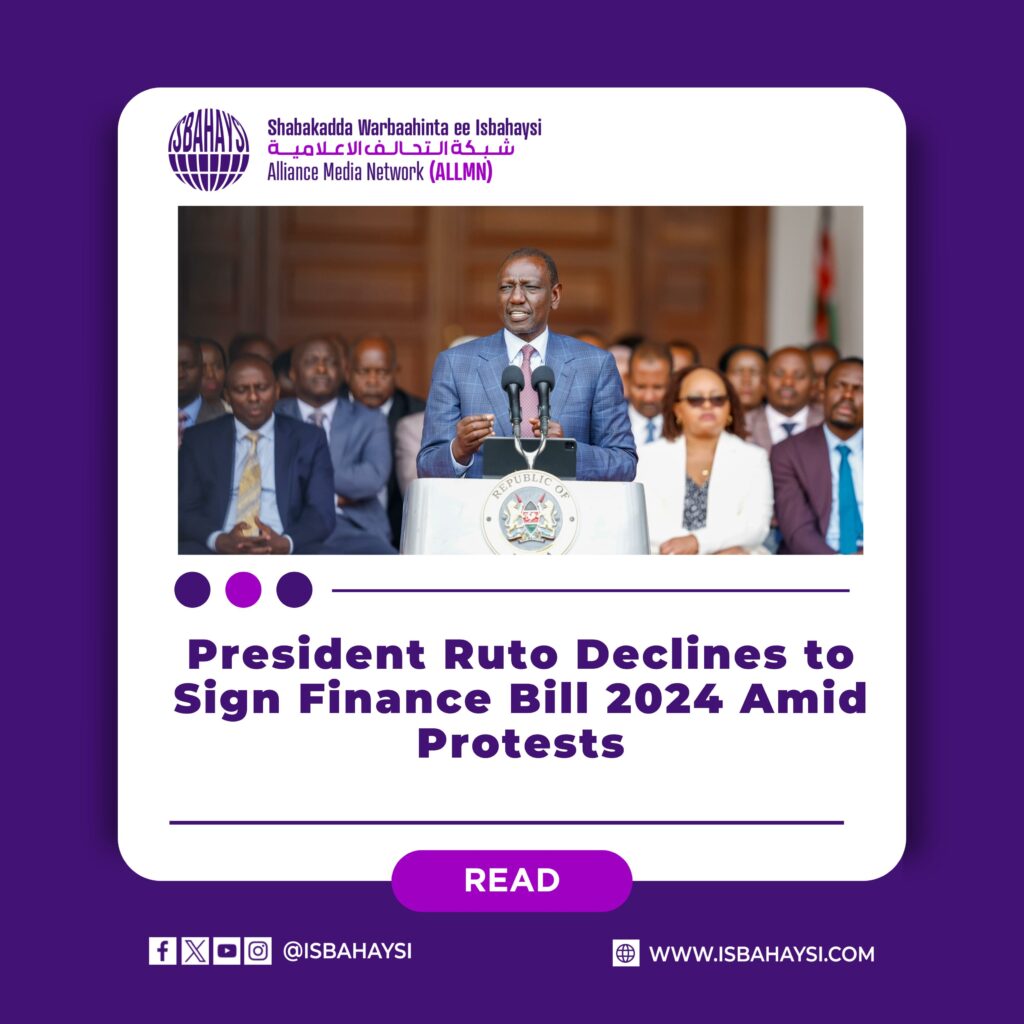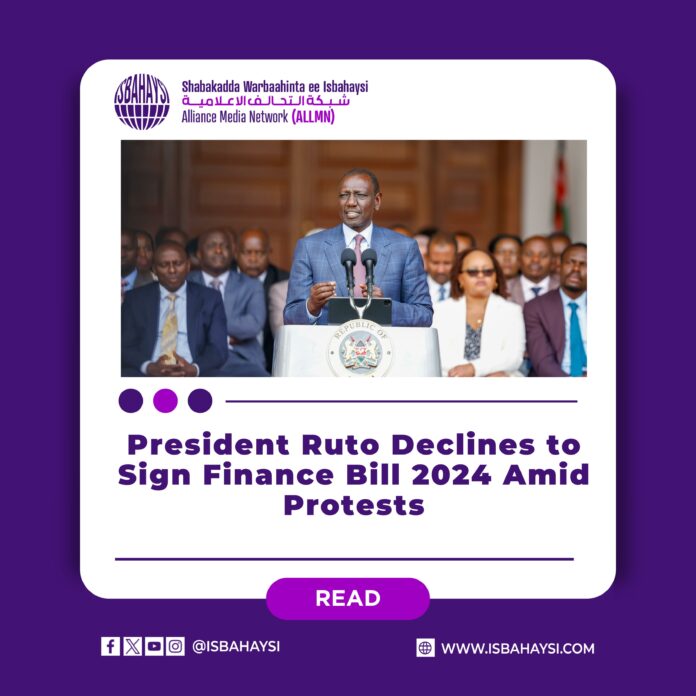Nairobi, June 2024 – In a dramatic turn of events, President William Ruto has declined to sign the contentious Finance Bill 2024 into law, bowing to intense public pressure and widespread protests. This decision follows Tuesday’s deadly demonstrations, which saw protesters breach Parliament premises for the first time in Kenya’s history.
President Ruto addressed the nation, expressing his condolences to the families of those who lost their lives during the protests. “Following the passage of the Bill, the country witnessed widespread expression of dissatisfaction with the Bill as passed, regrettably resulting in the loss of life, destruction of property, and desecration of constitutional institutions. I send condolences to the families of those who lost their loved ones in this unfortunate manner,” he said.
The Finance Bill 2024 had sparked significant controversy due to its proposed tax hikes on essential goods and services, including a 16% VAT on bread and taxes on transportation of sugar, financial services, and foreign exchange transactions. Despite initial revisions to the bill, public discontent remained high, culminating in the massive protests.
The demonstrations, which began on June 18, escalated after the bill was passed by Parliament. On June 25, protesters stormed Parliament, leading to deadly clashes with police. The violent encounters left several dead and numerous others injured, further intensifying calls for the bill to be scrapped.
The President’s decision not to sign the bill represents a significant victory for the protesters and a testament to the power of public participation in the legislative process. Moving forward, President Ruto emphasized the importance of dialogue and collaboration in crafting policies that align with the needs and aspirations of all Kenyans.
As the nation moves past this turbulent period, the focus now shifts to finding a balanced approach to economic policy that promotes growth without placing undue burdens on the populace. The government has pledged to engage more extensively with stakeholders to ensure that future proposals are more inclusive and equitable.




